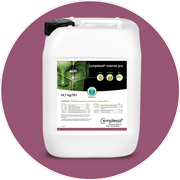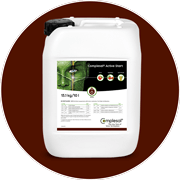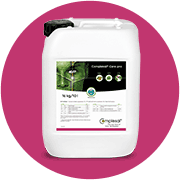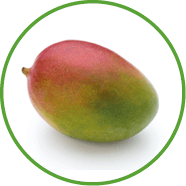
Mango
Mango trees require varied types and amounts of nutrients at their different stages of growth and development, and therefore foliar fertilizer application should be done at the right time and at the right rate for best results. Many mandatory nutrients are very immobile but essential for fulfilling the quality parameters from trade. The key nutrients for mango production are Potassium (K), Calcium (Ca) and Boron (B).
Key nutrients:
Foliar Calcium nutrition is essential in mango trees as it is poorly mobile. Whereas the largest part of an application via soil will reach the fruit years after fertilization. Calcium is the building block of plant cells. It strengthens cell walls, it is essential in all new growing points of mangoes including roots and root hairs, leaves, flowers and pollen tubes and it keeps the cell walls elastic and allows the cells to expand as they grow. Calcium is important for fruit firmness, shelf life and internal quality. Fruit deficiency symptoms are not directly visible on the tree but appear with the fruit where Ca deficiencies are linked to internal disorders like soft nose, jelly seed and reduced shelf life.
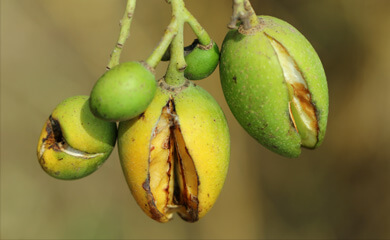
Besides Calcium, Boron is most efficiently applied via foliage. It affects the movement of plant hormones and sugars. Moreover, fruit set is increased as it helps with pollen viability and pollen tube growth. Additionally, it is a key component of cell walls and helps Calcium move to the cell walls. Boron can leach from soils very easily and cannot be translocated within the plant. It is basically required during all growth phases, but the majority is required during pollination and early fruit development. Deficiency can mainly be seen on the fruit. Too high application can have a toxic effect.
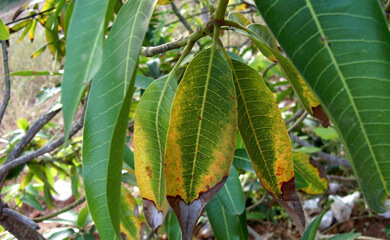
Potassium is required for cell division and expansion, particularly during fruit development. It controls the water household and therefore the uptake of other nutrients, by regulating the opening and closing of the stomates. Most importantly it helps move sugars around the plant, which is essential for fruits sweet and high in quality. Key effects of K on mango are increased fruit size and better flavor as well as skin and flesh color. Symptoms of K deficiency include general yellowing of leaf margins which can lead to a marginal leaf burn starting at the tip (necrosis).
Product recommendation mango

Contact us for more information
Whether you’re interested in more information or just have some questions, we’re here to help. Our experts will be pleased to share their knowledge with you and take care of your request.
